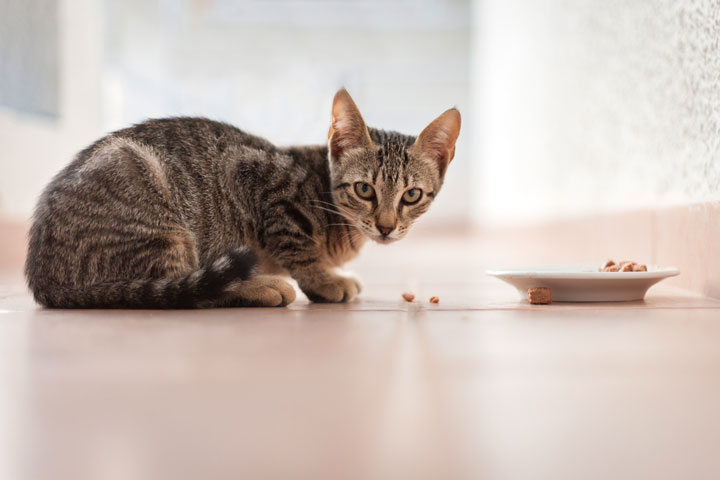
Why Won’t My Cat Eat His Food?
Is your cat a picky eater that turns up his nose at almost everything you serve? Why are some cats good eaters, while others act like they’d rather starve than eat what you give them?
What to Do About Picky Eaters
In general, cats will eat the food put in front of them without much hesitation. On the other hand, there are some cats that don’t show that much enthusiasm for certain foods. It can be concerning when your cat doesn’t show interest in his food, turns his nose up and walks away. Here are a few reasons why this might happen and what to do to help your cat get the nutrition he needs to maintain health.
Make Sure Your Cat is Healthy
The first thing you need to make sure of is that your cat is in good general health. If your cat has always been a good eater and suddenly develops a diminished appetite, this is something to be concerned about immediately — especially if he is overweight. If he has gotten thinner recently or develops vomiting or diarrhea also, it’s time to make a visit to the veterinarian. Once any problems have been diagnosed and treated, your cat’s appetite should return quickly.
Cat Food Preferences and Bad Habits
If health problems are not an issue, you might need to consider that your cat has acquired some bad habits. Feeding your cat extra kitty treats during the day that are tastier and more interesting than his normal diet, for example, can cause a finicky appetite to develop over time. If there are many people in the household that like to give your cat extra treats or slip him some special foods during the day, it can lead to some serious issues, including obesity.
Some cats will hold out until they are given something that just tastes better than dry cat food. Here is where you need to make some changes and stop reinforcing the bad behavior. Human foods and excessive treats only cause weight gain and don’t provide balanced nutrition. Your cat needs to eat nutritionally balanced food in proper amounts every day to maintain health. So, in this case it’s time to make some changes.
Stop feeding extra foods and special treats and stick to a daily scheduled feeding routine. If possible, put down a small amount of food several times a day, as cats tend to be grazers. Put down the proper amount of food at a regular time each day and wait. If your cat won’t eat the offered food, try again later. If he just won’t eat, and as long as he’s in good health and not an obese animal (or diabetic), wait things out a day and hopefully hunger will take over. This will help encourage his appetite for his cat food and after a short time he should learn that this food is the only food he will be getting every day.
Cat Food Choices and Feeding Methods
Check the food you are offering to make sure it’s not spoiled or out of date. This may be a reason your cat suddenly isn’t showing an interest in his food. Make sure the cat food you are offering is safe, nutritious, and consistent. Don’t keep changing the brand of cat food, because this can upset your cat’s digestive system. If you do want to try a different flavor or brand, make the switch gradually and mix some of the old with the new food until he is only eating all new food. A new flavor might just be enough to stimulate appetite.
If your cat just won’t eat dry cat food, no matter what, canned food is acceptable. There are a few tricks you can try that might entice him to eat, however. You can try another brand or flavor of food that might taste better your cat. Mixing in a tablespoon or two of canned food to dry kibbles may provide a flavor boost. Canned cat food can be warmed slightly in the microwave (on a microwave safe dish or bowl), or you can spoon some warm water or chicken broth over the dry food to give it warmth and extra aroma.
Stay Positive and Patient
Your cat may be responding to your behavioral cues during mealtimes. He may be enjoying the extra attention you give when he doesn’t eat his food, and this only reinforces the bad behavior. Stay out of the area while your cat eats and give him a quiet, safe place to eat alone, away from distractions or competition from other pets. Offer his food for a short period of time and then take it away. This will teach your cat to eat at certain regular times and will provide a comforting routine.
Above all, be patient with your cat and watch him closely for signs of illness. Work with your veterinarian if you are ever concerned about your cat’s health during this process. Time, self-discipline and consistency will do much to cure a finicky eater.

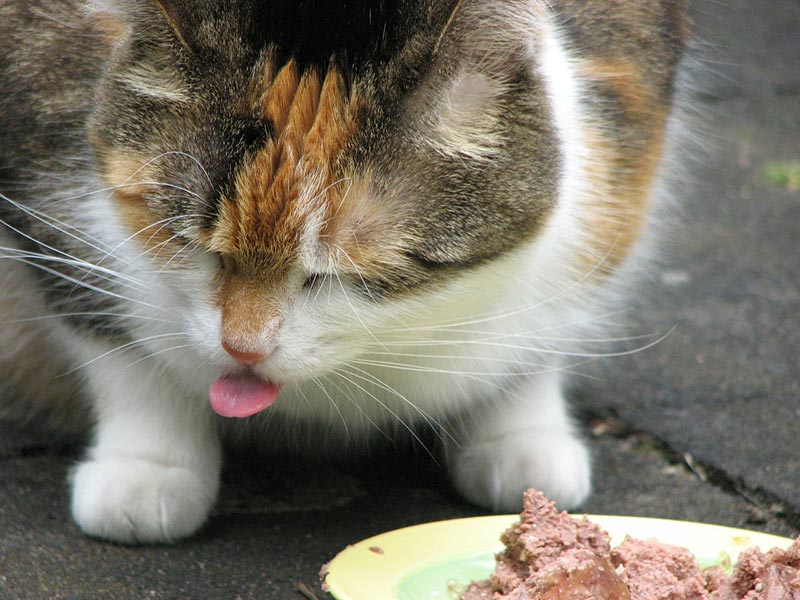
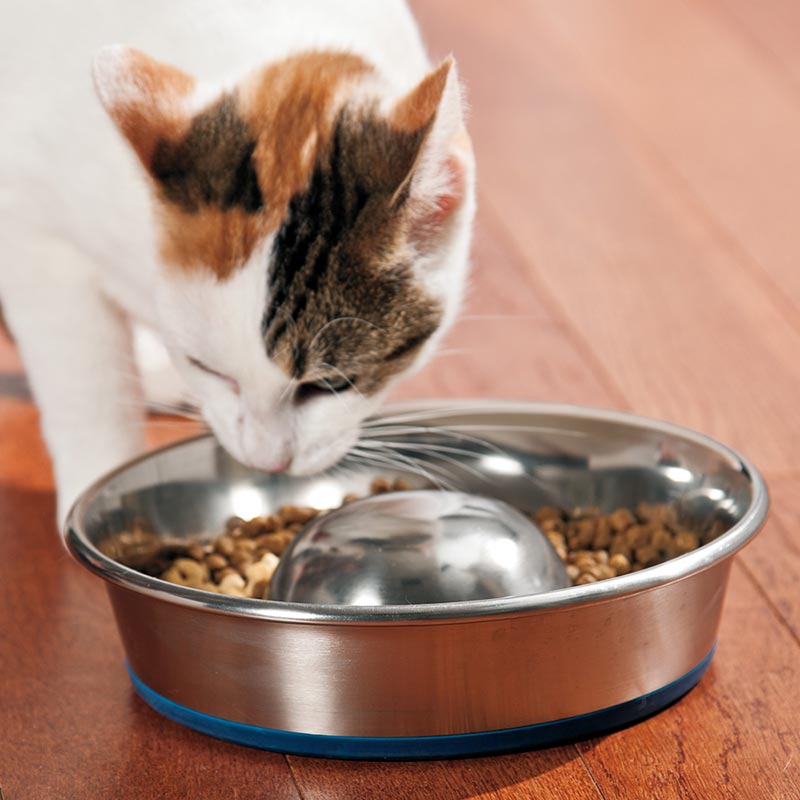

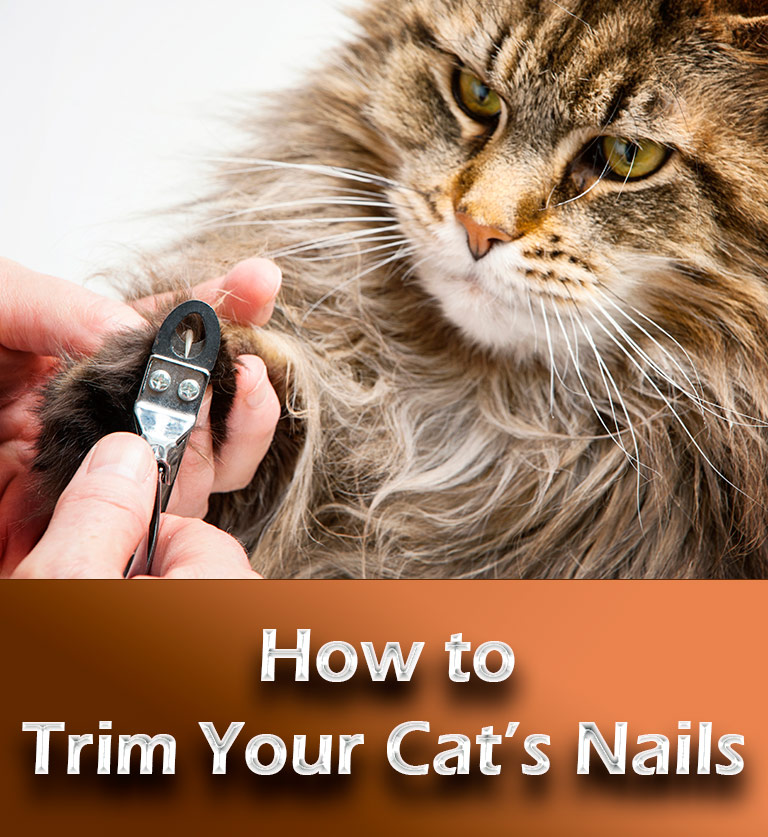
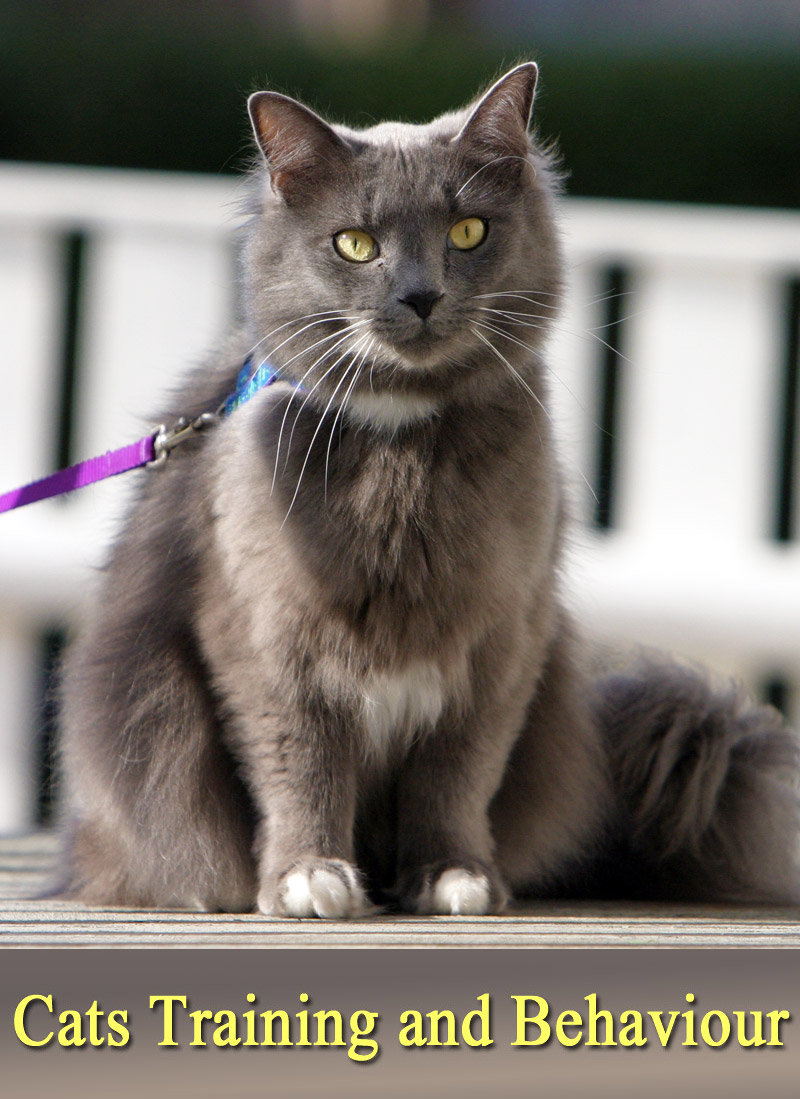
Leave a Reply